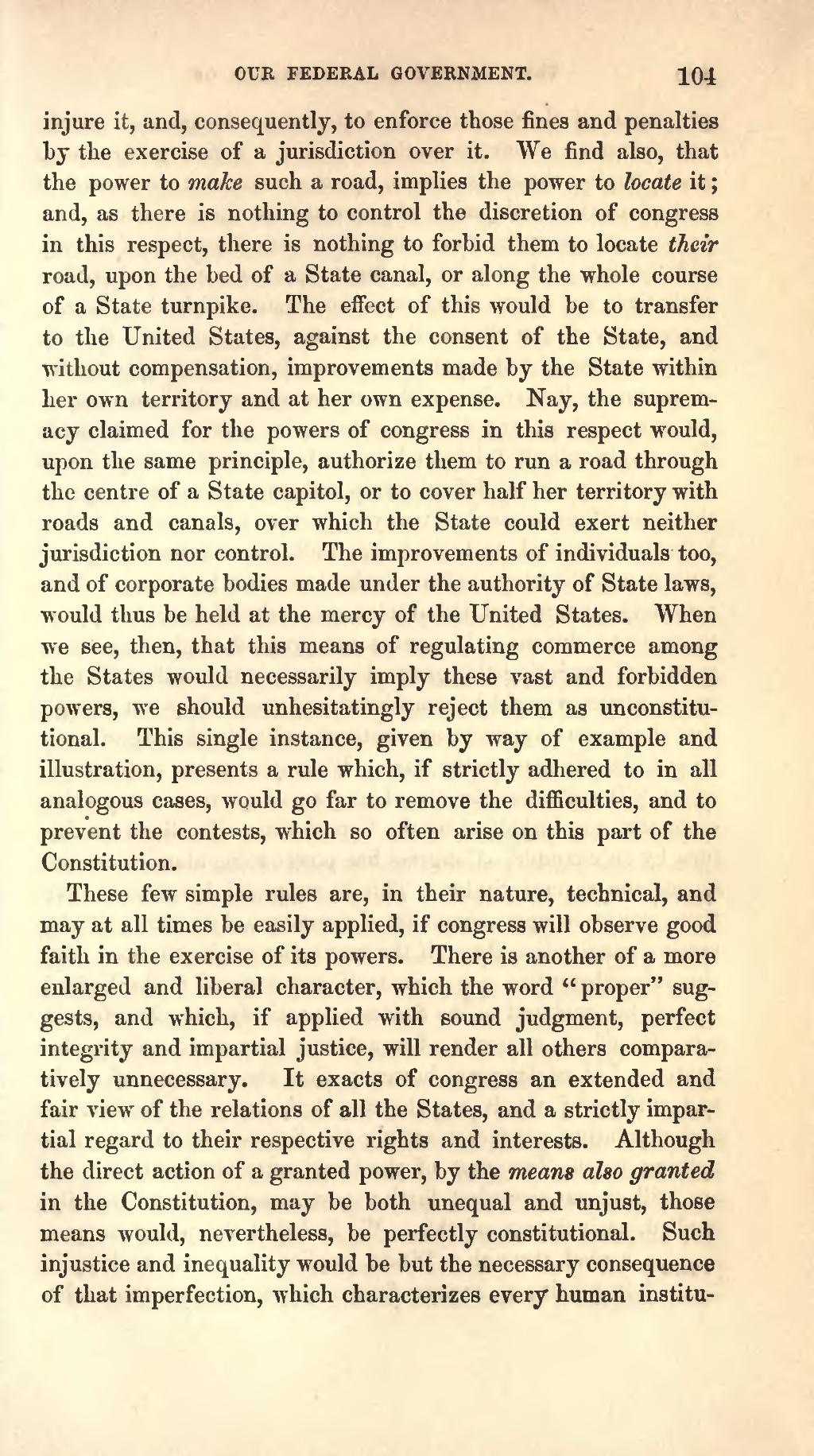injure it, and, consequently, to enforce those fines and penalties by the exercise of a jurisdiction over it. We find also, that the power to make such a road, implies the power to locate it; and, as there is nothing to control the discretion of congress in this respect, there is nothing to forbid them to locate their road, upon the bed of a State canal, or along the whole course of a State turnpike. The effect of this would be to transfer to the United States, against the consent of the State, and without compensation, improvements made by the State within her own territory and at her own expense. Nay, the supremacy claimed for the powers of congress in this respect would, upon the same principle, authorize them to run a road through the centre of a State capitol, or to cover half her territory with roads and canals, over which the State could exert neither jurisdiction nor control. The improvements of individuals too, and of corporate bodies made under the authority of State laws, would thus be held at the mercy of the United States. When we see, then, that this means of regulating commerce among the States would necessarily imply these vast and forbidden powers, we should unhesitatingly reject them as unconstitutional. This single instance, given by way of example and illustration, presents a rule which, if strictly adhered to in all analogous cases, would go far to remove the difficulties, and to prevent the contests, which so often arise on this part of the Constitution.
These few simple rules are, in their nature, technical, and may at all times be easily applied, if congress will observe good faith in the exercise of its powers. There is another of a more enlarged and liberal character, which the word "proper" suggests, and which, if applied with sound judgment, perfect integrity and impartial justice, will render all others comparatively unnecessary. It exacts of congress an extended and fair view of the relations of all the States, and a strictly impartial regard to their respective rights and interests. Although the direct action of a granted power, by the means also granted in the Constitution, may be both unequal and unjust, those means would, nevertheless, be perfectly constitutional. Such injustice and inequality would be but the necessary consequence of that imperfection, which characterizes every human institu-
